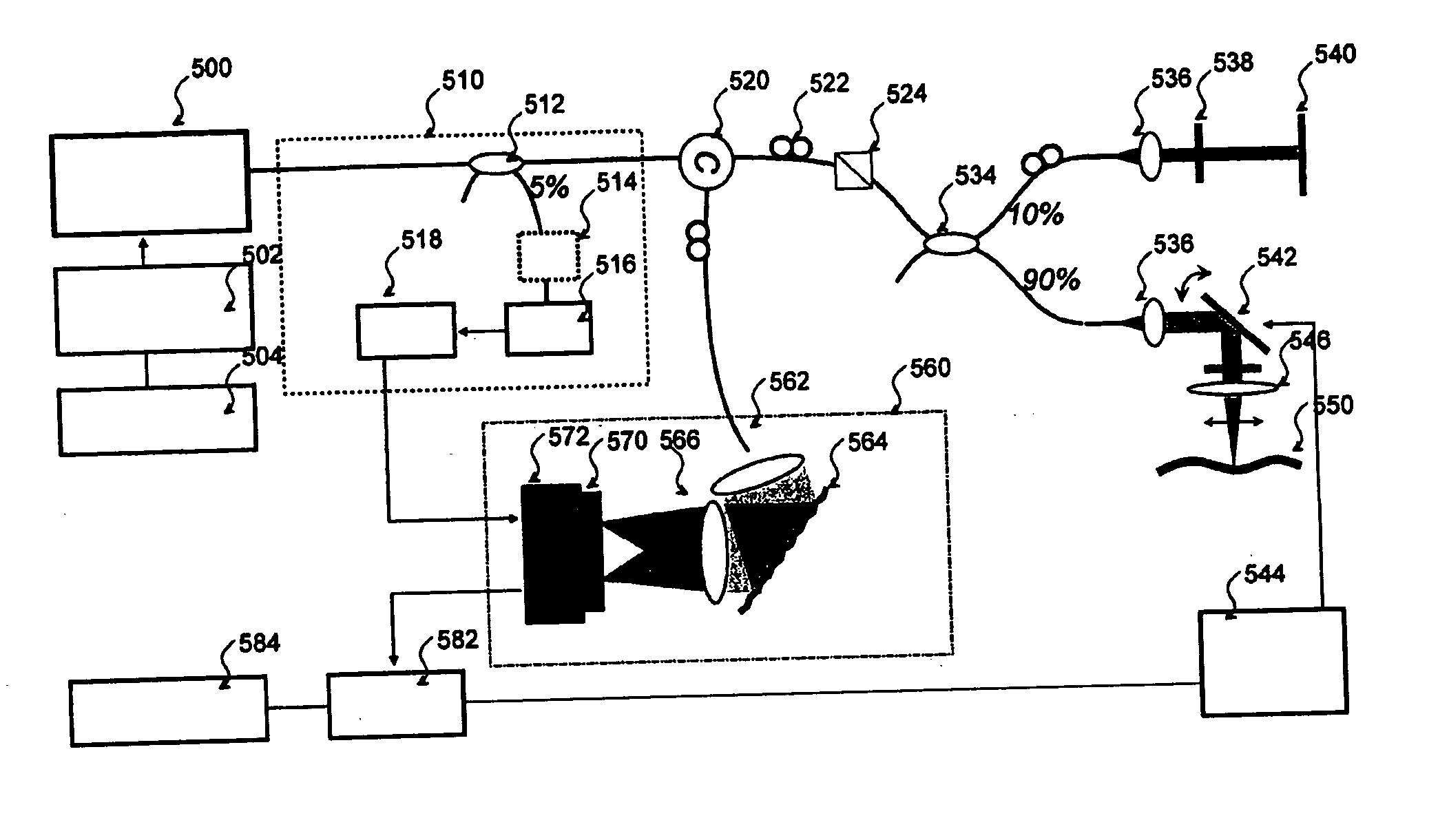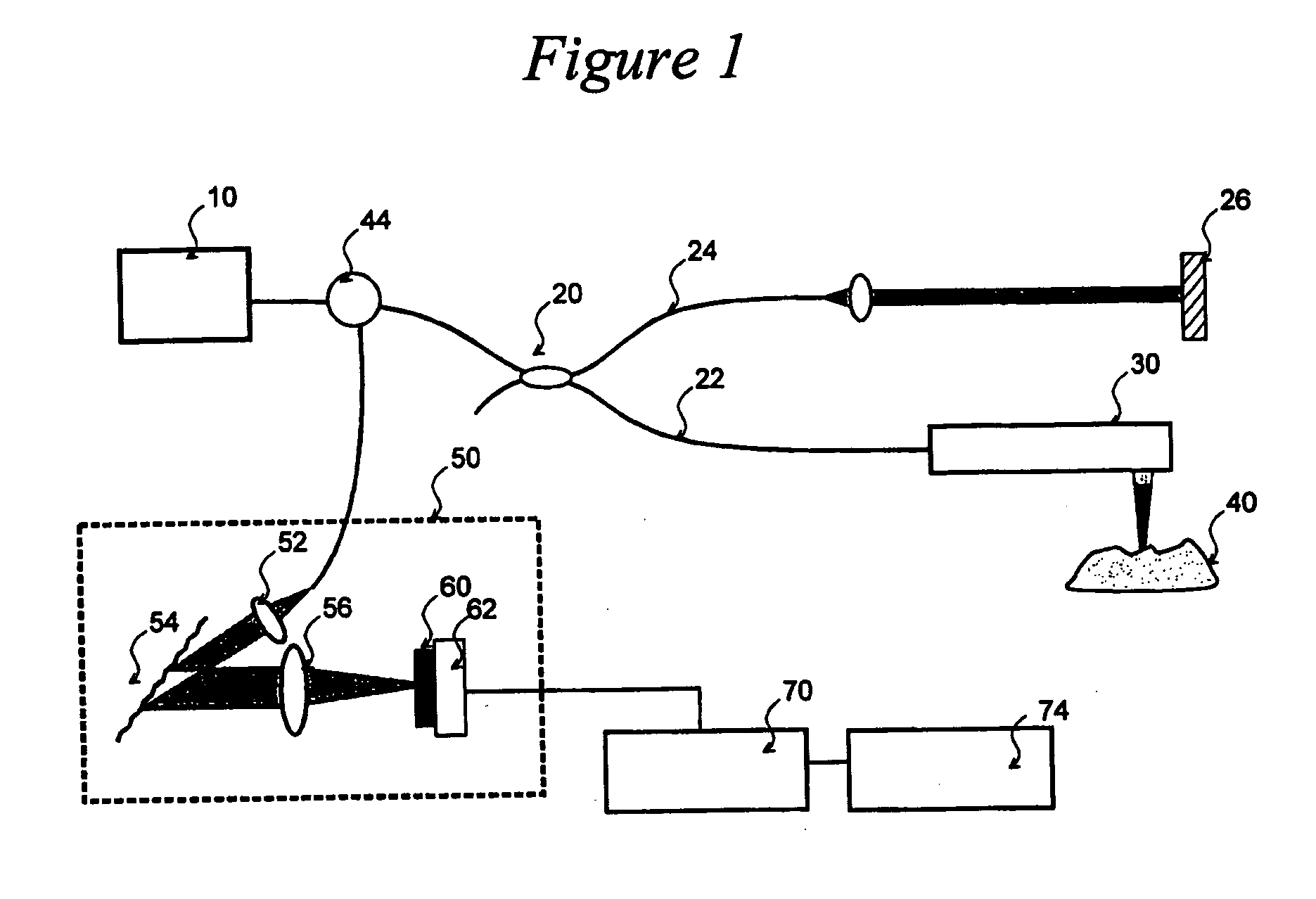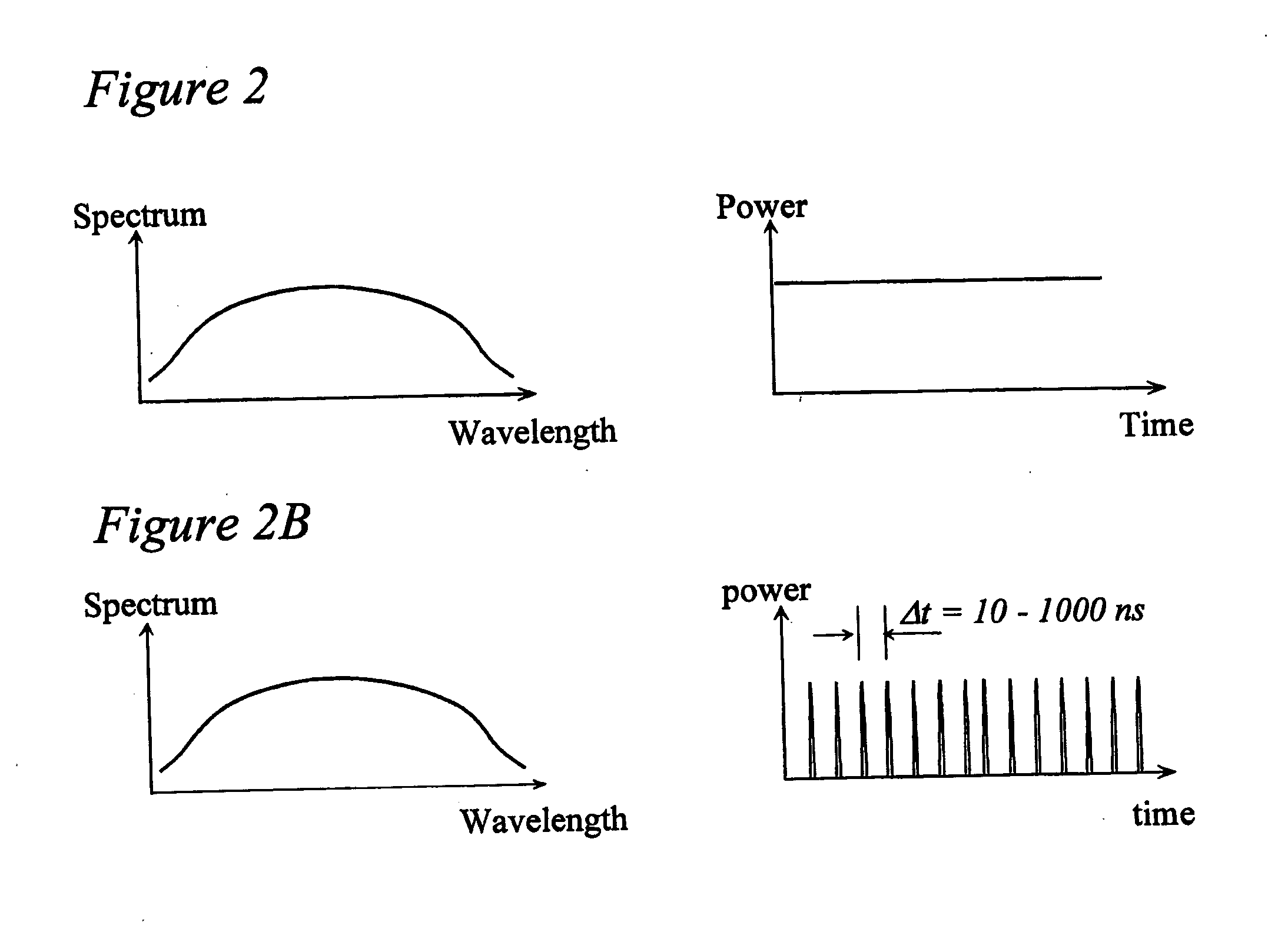System and method for optical coherence imaging
- Summary
- Abstract
- Description
- Claims
- Application Information
AI Technical Summary
Benefits of technology
Problems solved by technology
Method used
Image
Examples
Embodiment Construction
[0037]FIG. 1 depicts an exemplary basic configuration of a spectral-domain optical coherence tomography (“SD-OCT”) system. Broadband light 10 is split by a coupler 20 into a sample arm 22 and a reference arm 24 that is terminated by a mirror 26 at its distal end. A probe 30 at the end of the sample arm delivers light to a sample 40, and receives the light backscattered from within the sample. The light returned from the two interferometer arms is recombined and directed via a circulator 44 to a spectrometer 50 consisting of a collimator 52, a diffraction grating 54, and a lens 56, a CCD array 60, and camera 62. Individual pixels of the CCD array 60 measure the optical power as a function of wave number, k=2π / λ where λ is the optical wavelength. The CCD output is digitized using a digitizer 70 and processed in a computer 74. A discrete Fourier transform (“DFT”) of the CCD scan output produces an axial reflectance profile of the sample (A-line). A 2-D tomographic image can be obtained...
PUM
 Login to View More
Login to View More Abstract
Description
Claims
Application Information
 Login to View More
Login to View More - R&D
- Intellectual Property
- Life Sciences
- Materials
- Tech Scout
- Unparalleled Data Quality
- Higher Quality Content
- 60% Fewer Hallucinations
Browse by: Latest US Patents, China's latest patents, Technical Efficacy Thesaurus, Application Domain, Technology Topic, Popular Technical Reports.
© 2025 PatSnap. All rights reserved.Legal|Privacy policy|Modern Slavery Act Transparency Statement|Sitemap|About US| Contact US: help@patsnap.com



